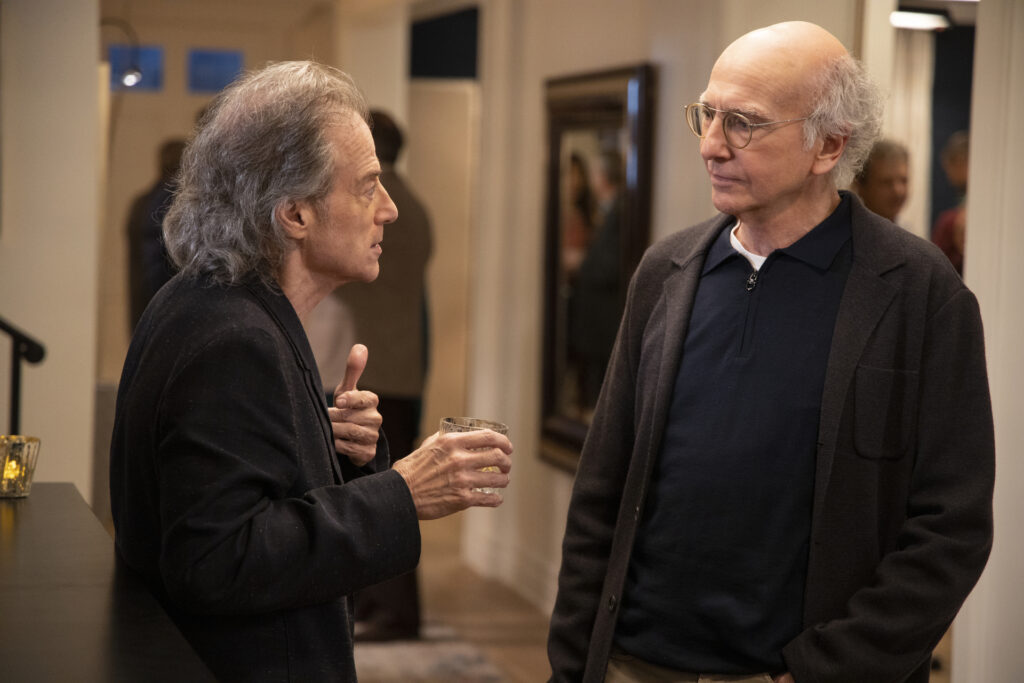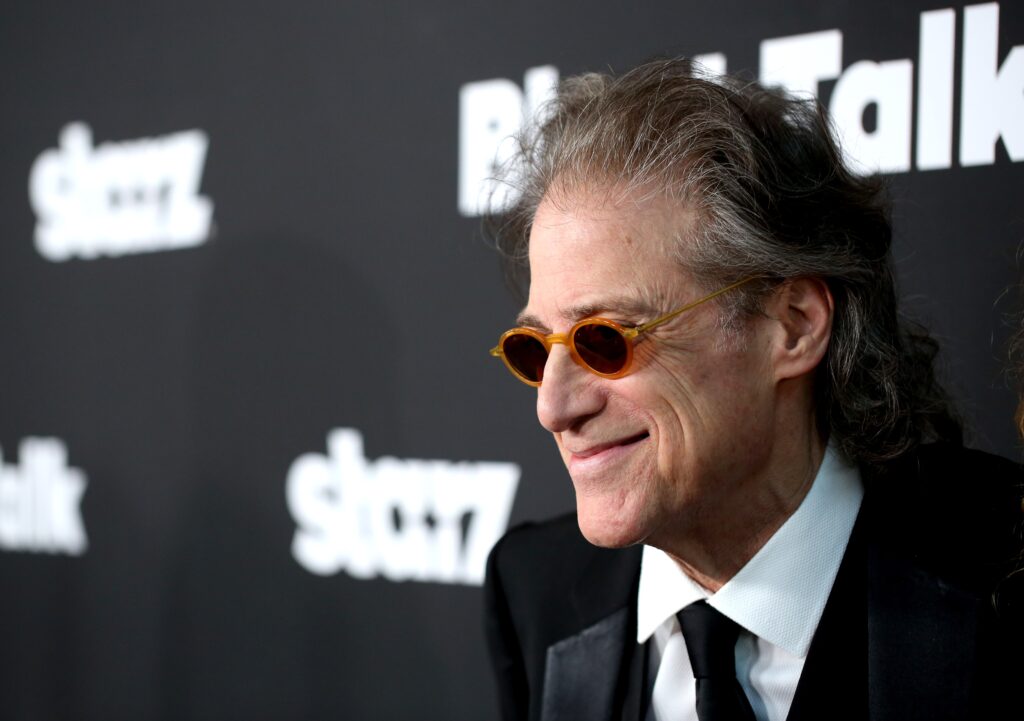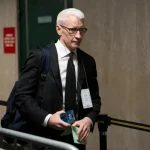
It is always sad to watch the final season of one of your favorite TV shows, as we fans of HBO‘s Curb Your Enthusiasm have been doing this season. We are grateful for all the great times and uproarious laughs the show has given us, and we are happy they decided to make this final season at all. But as delighted as we are to have these few final episodes to savor of an all-time great show, we cannot help but watch these episodes with a tinge of melancholy in our laughs as we try to push away from our minds the awareness that this will be the last time we will ever have new Curb episodes. This melancholy will become even sharper, and this latent sadness even more poignant, as we watch the final few Curb episodes with the knowledge that it will be the final time we will see Richard Lewis in any medium.

Lewis, the beloved standup comedian who gained even greater fame when he became a recurring cast member on Larry David’s Curb Your Enthusiasm, died last week in his Los Angeles home at the age of 76. Born in Sheepshead Bay, Brooklyn, and raised in Englewood, New Jersey, Lewis was a part of the fabled 1970s New York City comedy scene and, by the 1980s and ’90s, had become widely respected in comic circles for his raw, refreshingly honest standup routines. While other standup comedians were getting laughs by making humorous observations about the external world, Lewis brilliantly and bravely got laughs by shining his comedic focus inward and making humorous observations about his own psychological foibles. Although he appeared several times on The Tonight Show Starring Johnny Carson and in several high-profile movies such as Robin Hood: Men in Tights, he was not well known to the general public until he joined the cast of Curb Your Enthusiasm during the hit show’s first season in 2000, appearing in the show’s very first episode.
Like his longtime friend Larry David, Lewis also played a version of himself on Curb — a version that stressed his neuroticism, hypochondria, relationship insecurities, and inveterate lugubriousness. (Lewis never appeared on Curb without his trademark all-black attire.) Many of Lewis’s Curb appearances involve him getting angry at Larry for some slight, only always to make up with him in the end, even when the offense seemed unforgivable at the time.

On other occasions, though, Lewis acts as a supplementary confidant to Larry, a part of his small inner circle of friends, along with Jeff, Marty Funkhouser (Bob Einstein, who also recently left us far too soon), and, more recently, Leon. Although Jeff is Larry’s closest adviser, Lewis often comes across as his closest friend. And even though there is more friction and contretemps between Larry and Lewis than between Larry and Jeff, there is a fundamental sweetness, almost a kind of tenderness, between Larry and Lewis that Larry doesn’t enjoy with any of the other characters on the show.
CLICK HERE TO READ MORE FROM THE WASHINGTON EXAMINER
This dynamic likely stems from how close they were in real life, having been born only three days apart in the same Brooklyn hospital, having known each other since they were 12, and having come up together in the 1970s New York comedy scene. Like two basketball players who’ve been playing with each other for years and who always know where their teammate likes the ball and where they like to roll on pick and rolls, Lewis and Larry worked so well together on Curb because of how well they knew each other, down to their littlest tics and most vexing pet peeves. As Lewis once said about working with Larry (speaking as if he were John Stockton to Larry’s Karl Malone): “I love setting him up. And I know how to set him up. … I know how to aggravate him. And then he goes off on these rants. … The more I aggravate him, the happier he is with me, I’m convinced.”
Larry, in a statement released upon hearing of his dear friend’s death, acknowledged not only how close they were but also clued us in to some of the qualities that made Lewis such an endearing character on the show. “For most of my life he’s been like a brother to me,” he began, before pinpointing Lewis’s “rare combination of being the funniest person and also the sweetest.” Pathos, though, is never without its humorous edge, and vice versa, in Lewis and Larry’s comedic universe. As Larry concluded: “But today he made me sob and for that I’ll never forgive him.”
Daniel Ross Goodman is a Washington Examiner contributing writer and a postdoctoral fellow at Harvard Divinity School. His latest book, Soloveitchik’s Children: Irving Greenberg, David Hartman, Jonathan Sacks, and the Future of Jewish Theology in America, was published this summer by the University of Alabama Press.






